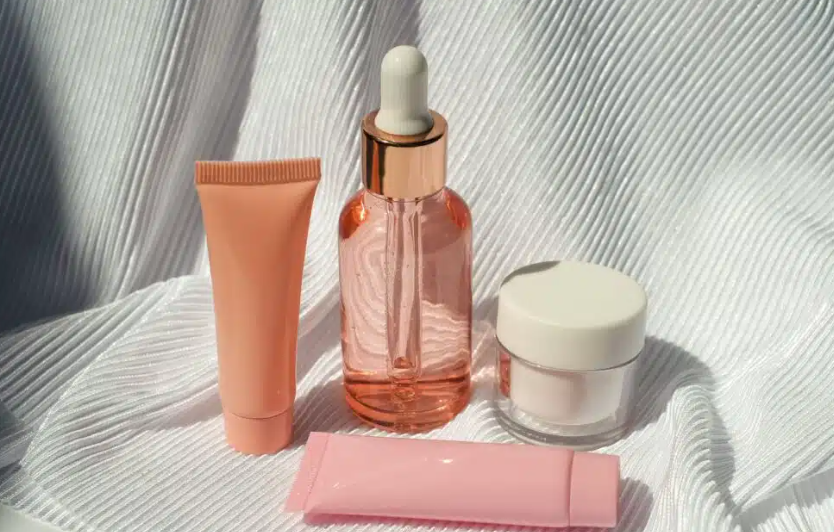The global skincare industry is evolving at a rapid pace, with consumers demanding innovative, effective, and safe products. From natural ingredients to advanced formulations, the beauty market is brimming with opportunities for brands that want to stand out. For entrepreneurs and businesses, private labeling has emerged as a powerful strategy to build a skincare brand without the heavy investment in research and manufacturing. Partnering with experienced manufacturers like Zicail skincare ensures high-quality products, reliable services, and innovative solutions tailored to your target audience.
In this article, we’ll explore everything you need to know about choosing the right private label skincare products — from identifying trends to evaluating manufacturers and ensuring your brand’s success.
Understanding Private Label Skincare
Private label skincare refers to products manufactured by one company and sold under another company’s brand name. It allows businesses to create their own skincare line quickly and cost-effectively. Instead of developing formulas from scratch, companies can choose from pre-developed formulations and customize them with branding, packaging, and unique positioning.
This approach is ideal for:
. Startups aiming to enter the beauty market without massive investment.
. Retailers expanding their in-house product lines.
. Influencers and lifestyle brands who want to launch personalized beauty collections.
See also: Discover the Best 5 Seasonal Services for Florida Homeowners
Why Private Labeling is Growing in Popularity
1. Cost-Effective Entry
Developing skincare products from scratch involves years of R&D, testing, and regulatory approvals. Private labeling eliminates most of these costs.
2.Speed to Market
With pre-developed formulations, businesses can launch products in weeks instead of years.
3.Customization Options
From packaging designs to fragrance variations, brands can differentiate themselves while keeping costs low.
4.Focus on Branding
Instead of worrying about production, businesses can focus on marketing and building customer relationships.
Key Trends Shaping Skincare Products
When choosing private label skincare items, understanding industry trends is crucial:
. Natural and Organic Ingredients: Consumers increasingly prefer clean formulations without harmful chemicals.
. Sustainable Packaging: Eco-friendly bottles, jars, and refill options are gaining popularity.
. Personalization: Skincare tailored to skin type, age, or specific concerns is in high demand.
. Multifunctional Products: Items that combine several benefits, like moisturizers with SPF, are trending.
. Global Appeal: With multilingual e-commerce, products should resonate with International audiences.
How to Select the Right Manufacturer
Choosing the right manufacturer determines your brand’s reputation. Here are some factors to consider:
1. Experience and Expertise
Look for manufacturers with decades of experience in skincare formulations, like those in established hubs such as Jiangsu, China. A proven track record ensures reliability.
2. Customization Capabilities
The ability to tailor products — whether through fragrance, active ingredients, or packaging — is essential for brand uniqueness.
3. Quality Certifications
Ensure the manufacturer complies with international standards (GMP, ISO, FDA compliance, etc.). Certifications build trust with customers.
4. Research and Development
A forward-thinking manufacturer invests in innovation, creating cutting-edge skincare solutions that align with global trends.
5. Global Reach
Since skincare has a worldwide audience, a manufacturer with multilingual support and global distribution is ideal.
Benefits of Working with an Experienced Partner
Partnering with a professional private label manufacturer provides multiple advantages:
. Access to Ready-Made Formulas: Time-tested, stable, and effective skincare products.
. Regulatory Compliance: Meeting global regulations, from Europe to Asia to the U.S.
. Scalable Production: Ability to scale production as your business grows.
. Marketing Support: Some manufacturers provide insights into packaging design and brand positioning.
Essential Skincare Products to Consider for Private Labeling
When entering the skincare market, the product selection matters. Popular categories include:
. Cleansers: Gentle formulas for different skin types.
. Moisturizers: Hydration solutions for dry, oily, or sensitive skin.
. Serums: Targeted treatments for anti-aging, brightening, or hydration.
. Sunscreens: Everyday protection with broad-spectrum SPF.
. Masks and Exfoliants: Specialty treatments to complement daily routines.
Launching a product line with core essentials is often a smart strategy before expanding into niche products.
Quality Assurance in Skincare Manufacturing
Consumers trust skincare brands with proven safety and quality. Manufacturers should:
. Conduct dermatological testing.
. Use high-quality raw materials.
. Follow rigorous safety protocols.
. Provide transparent ingredient lists.
A commitment to quality not only builds consumer trust but also ensures repeat purchases.
Tips for Building a Successful Skincare Brand
1.Know Your Audience
Define whether your target is luxury buyers, eco-conscious millennials, or mass-market consumers.
2.Focus on Packaging
Attractive, eco-friendly, and functional packaging influences buying decisions.
3.Leverage Digital Marketing
Social media, influencer collaborations, and content marketing drive brand awareness.
4.Offer Value
Consumers appreciate brands that provide education and skincare tips, not just products.
5.Adapt to Global Markets
Multilingual content ensures your products appeal to international customers.
The Future of Private Label Skincare
The demand for private label skincare is expected to rise as more businesses recognize its potential. With increasing focus on sustainability, inclusivity, and innovation, brands that partner with reliable manufacturers are well-positioned to succeed in this competitive industry.
Choosing a trusted manufacturer like zicail.com can help businesses deliver exceptional skincare solutions, ensuring product quality, compliance, and customer satisfaction. Whether you are a startup, retailer, or established brand, private labeling opens doors to growth in the booming global skincare market.






